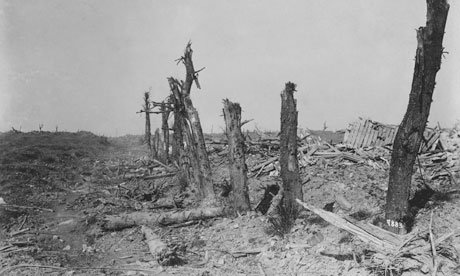I didn't realise that the memorials were originally Peace memorials so I found this collection of letters most interesting.
Via http://www.guardian.co.uk/world/2013/may/24/going-down-of-the-sun
I wholeheartedly endorse the anti-war sentiments expressed by Jude Law et al (Letters, 22 May). It may be worth reminding David Cameron, before he goes on to mark the anniversary of the first world war with a "truly national commemoration of national spirit", that the so-called "war memorials" erected throughout the land after the war were originally called "peace memorials". If you look at two politically neutral guidebooks, in Arthur Mee's The King's England, in the 30s, you will see them referred to in a quite matter-of-fact way as "peace memorials", whereas three decades and another world war later, Nikolaus Pevsner's The Buildings of England describes them as "war memorials". Let any modern memorial mark that peace, and remember with humility the suffering and sacrifice on all sides rather than by taking pride in "national spirit".
Austen Lynch
Garstang, Lancashire
• I thought the whole point of continued remembrance of the two world wars, and all wars, was to help to avoid starting another. Every November, across the world, there are thousands of services where lines from poems of Laurence Binyon and John McCrae are spoken: At the going down of the sun and in the morning / We will remember them (For the Fallen); If ye break faith with us who die / We shall not sleep, though poppies grow / In Flanders' Fields (In Flanders' Fields). Are these words not meant to be taken to heart?
K Vines
Yelverton, Devon

'A military disaster and a human catastrophe' ... the devastated Somme battleground between Bapaume and Arras in 1916. Photo: Hulton-Deutsch Collection/Corbis
Next year marks the 100th anniversary of the beginning of the first world war. Far from being a "war to end all wars" or a "victory for democracy", this was a military disaster and a human catastrophe.
We are disturbed, therefore, that David Cameron plans to spend £55m on a "truly national commemoration" to mark this anniversary. Mr Cameron quite inappropriately compared these events to the "diamond jubilee celebrations" and stated that their aim will be to stress our "national spirit". That they will be run at least in part by former generals and ex-defence secretaries reveals just how misconceived these plans are.
Instead we believe it is important to remember that this was a war that was driven by big powers' competition for influence around the globe, and caused a degree of suffering all too clear in the statistical record of 16 million people dead and 20 million wounded.
In 2014, we and others across the world will be organising cultural, political and educational activities to mark the courage of many involved in the war but also to remember the almost unimaginable devastation caused. In a time of international tension, we call on all those who agree with us to join us – by adding their names to ours at ww1.stopwar.org.uk – to ensure that this anniversary is used to promote peace and international co-operation.
Jude Law, Michael Morpurgo, Antony Gormley, Patrick Stewart, Carol Ann Duffy, Vanessa Redgrave, Simon Callow, Brian Eno, Lindsey German, Jeremy Corbyn MP, Tony Benn, Timothy West, Dominic Cooke, AL Kennedy, Janie Dee, Neil Faulkner, Heathcote Williams, Dame Harriet Walter, Tim Pigott-Smith, Roger Lloyd Pack, Alan Rickman, Ken Loach, Ralph Steadman, Ken Livingstone, Rob Montgomery, Duncan Heining, Chris Nineham, Kate Hudson, Jan Woolf, Peter Kennard, Andy de la Tour, Evan Parker, Robert Wyatt, Colin Towns, Chris Searle, Neil Yates, Steve Berry, Leo Aylen, Danny Thompson, Terry Jones, Kika Markham, Susan Wooldridge, Tony Haynes, Mike Dibb, Nic France, Leon Rosselson, Barry Miles, Liane Aukin, Alistair Beaton

